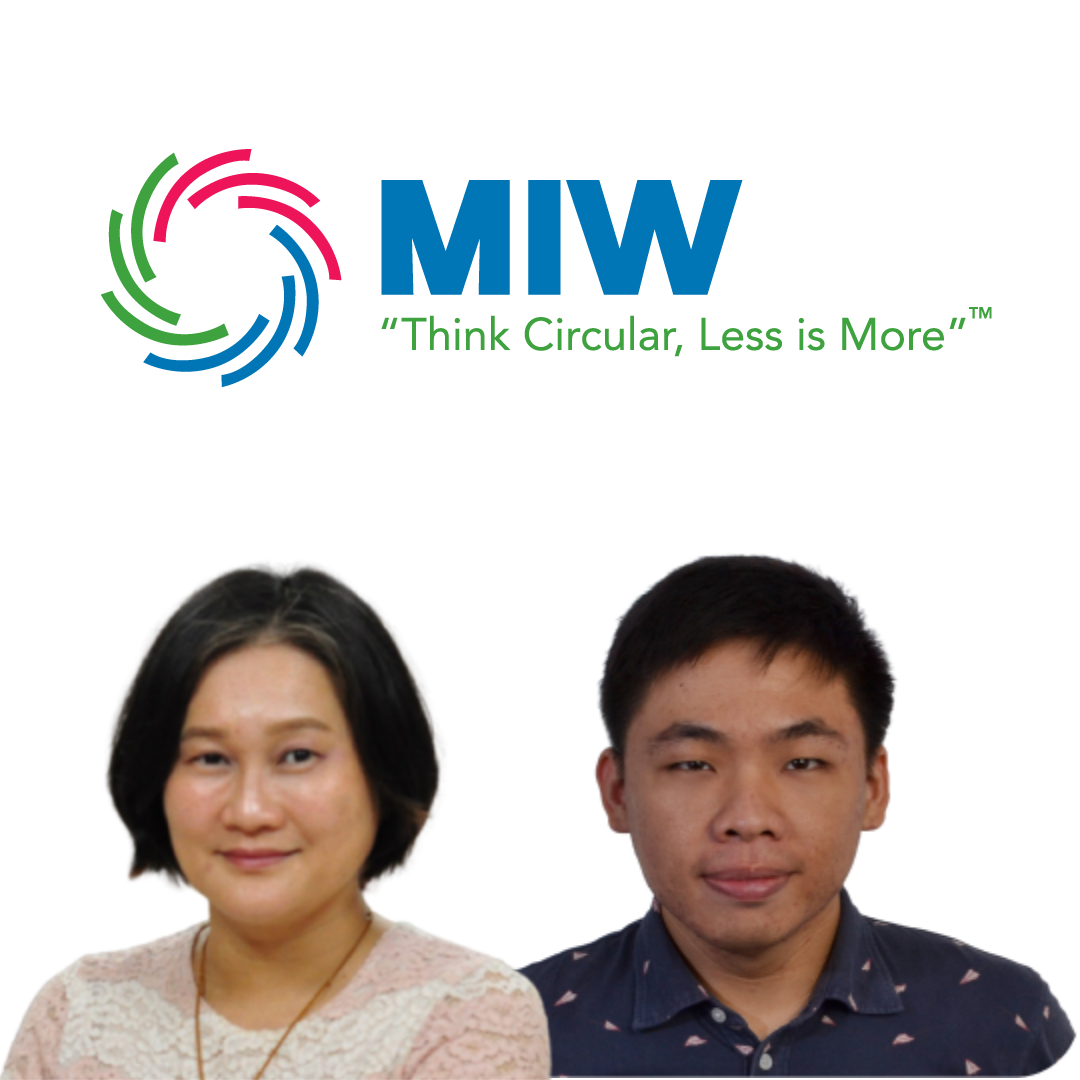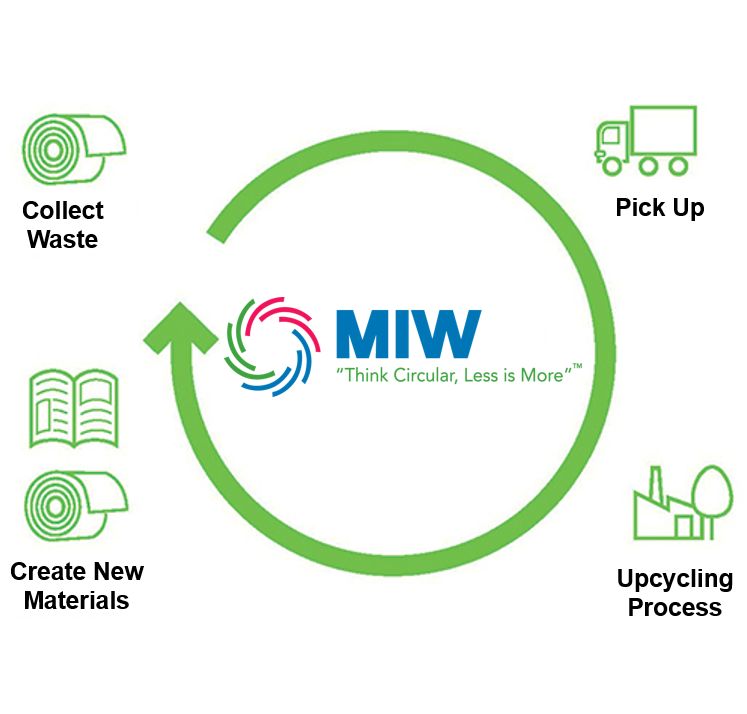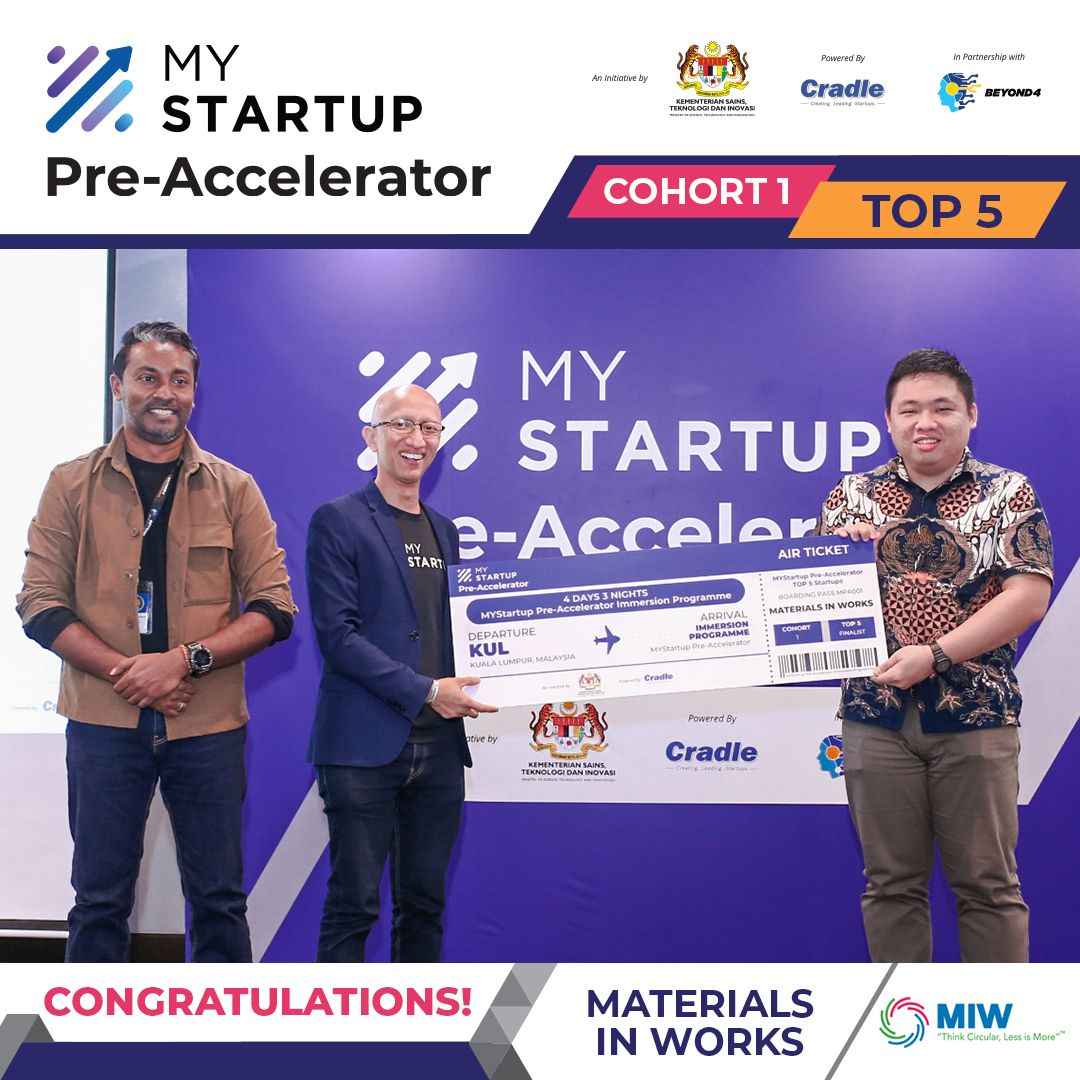Materials In Works
Founded by a group of enthusiastic packaging material experts, the Malaysia-based start-up Materials In Works (MIW) is tackling global warming and environmental pollution by reintroducing residual paper liner from the label packaging industry back into the value chain as recovered cellulose pulp. Thus, the start-up prevents the valuable paper liner residues from ending up in landfills and focuses on recovering the cellulose pulp as a raw material which meets the need of local paper manufacturers. For this reason, Materials In Works, one of the ISC3 Innovation Challenge 2022 Finalists, has been chosen as the ISC3 Start-up of the Month of November 2022.
Year of Foundation:
2018
Addresses the following SDGs:
SDG 9 (Industry, Innovation and Infrastructure), SDG 12 (Responsible Production and Consumption), SDG 13 (Climate Action)




